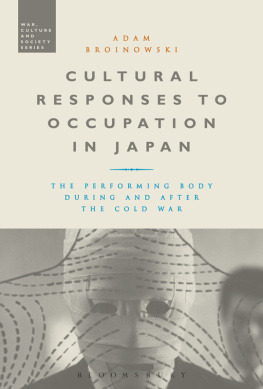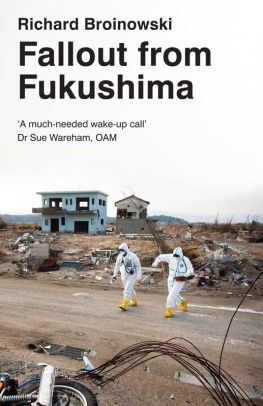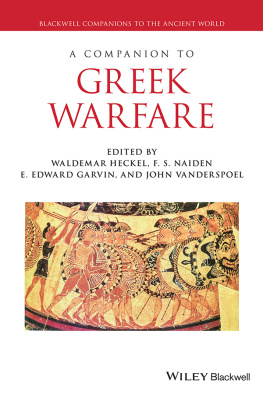Broinowski - Cultural Responses to Occupation in Japan
Here you can read online Broinowski - Cultural Responses to Occupation in Japan full text of the book (entire story) in english for free. Download pdf and epub, get meaning, cover and reviews about this ebook. publisher: Bloomsbury UK, genre: Politics. Description of the work, (preface) as well as reviews are available. Best literature library LitArk.com created for fans of good reading and offers a wide selection of genres:
Romance novel
Science fiction
Adventure
Detective
Science
History
Home and family
Prose
Art
Politics
Computer
Non-fiction
Religion
Business
Children
Humor
Choose a favorite category and find really read worthwhile books. Enjoy immersion in the world of imagination, feel the emotions of the characters or learn something new for yourself, make an fascinating discovery.
- Book:Cultural Responses to Occupation in Japan
- Author:
- Publisher:Bloomsbury UK
- Genre:
- Rating:3 / 5
- Favourites:Add to favourites
- Your mark:
- 60
- 1
- 2
- 3
- 4
- 5
Cultural Responses to Occupation in Japan: summary, description and annotation
We offer to read an annotation, description, summary or preface (depends on what the author of the book "Cultural Responses to Occupation in Japan" wrote himself). If you haven't found the necessary information about the book — write in the comments, we will try to find it.
Cultural Responses to Occupation in Japan — read online for free the complete book (whole text) full work
Below is the text of the book, divided by pages. System saving the place of the last page read, allows you to conveniently read the book "Cultural Responses to Occupation in Japan" online for free, without having to search again every time where you left off. Put a bookmark, and you can go to the page where you finished reading at any time.
Font size:
Interval:
Bookmark:
Cultural Responses to
Occupation in Japan
War, Culture and Society
Series Editor: Stephen McVeigh, Associate Professor, Swansea University, UK
Editorial Board:
Paul Preston LSE, UK
Joanna Bourke Birkbeck, University of London, UK
Debra Kelly University of Westminster, UK
Patricia Rae Queens University, Ontario, Canada
James J. Weingartner Southern Illinois University, USA (Emeritus)
Kurt Piehler Florida State University, USA
Ian Scott University of Manchester, UK
War, Culture and Society is a multi and interdisciplinary series which encourages the parallel and complementary military historical and sociocultural investigation of 20th and 21stcentury war and conflict.
Published:
The British Imperial Army in the Middle East, James Kitchen (2014)
The Testimonies of Indian Soldiers and the Two World Wars, Gajendra Singh (2014)
South Africas Border War, Gary Baines (2014)
Cultural Responses to Occupation in Japan, Adam Broinowski (2016)
Forthcoming:
Jewish Volunteers, the International Brigades and the Spanish Civil War, Gerben Zaagsma
The Japanese Comfort Women and Sexual Slavery During the China and Pacific Wars, Caroline Norma
Cultural Responses to
Occupation in Japan
The Performing Body During and After the Cold War
Adam Broinowski
Bloomsbury Academic
An imprint of Bloomsbury Publishing Plc

Contents
Grounded in periods of life spent immersed in society in Japan, in this book, I trace the performing body in some key artistic works in prismatic relation to an environment conditioned by the reconfiguration of post-1945 Japan until the first decade of the twenty-first century.
From an overview of the foundational re-orientation of Japan during the US-led military occupation amid a geopolitical shift in world order, I outline the cultural responses to these conditions, primarily through the body, as identified in literature and film of 19451960. Working from the core tensions expressed during this period, I then provide an in-depth analysis of Hijikata Tatsumis Ankoku Butoh from the post-war to the late 1970s. Through the physical practice of butoh in relation to socio-political conditions, I develop an understanding of its theoretical framework (Butoh-sei) informed by the artists influences within broader confluences of thought. I follow the extension and re-thinking of this architecture into the work of Gekidan Kaitaisha (Theatre of Deconstruction) from the mid-1980s to the mid-2000s.
From research conducted on the Bye Bye series (19992006) and an intercultural collaboration series (Dream Regime 20042008), I analyse the transformation of the conception of the body with regard to historical memory, social identity and Japans changing role in the world after the Cold War. Taking inspiration from Kaitaishas workshops in Cardiff and Timor-Leste, in the final chapters I employ the theoretical frame of the occupied condition developed over the previous chapters to analyse Timorese perspectives. This extends the discussion to the effects of colonization since European expansion, through Japanese invasion in the Second World War, to Indonesian neo-colonial occupation and Timorese independence. As an epilogue, I analyse a solo performance Vivisection Vision: Animal Reflections (20042008) made during the first five years of the War on Terror, to bring together the conceptual framework developed from this analysis of the post-1945 world order as it was implemented in post-war Japan.
Lived experience, particularly of those whose lives are not recorded in written accounts or by official registries and institutions, is always difficult to ascertain from solely archive-based accounts in a given historical period. This analysis of historical events through predominantly artistic responses is not to claim a definitive and totalizing account of the way things were. Similarly, rather than an exhaustive study on one particular artist, this is to introduce complexity from marginalized and neglected perspectives into pre-existing discursive formations concerning Cold War Japan, and after. This can be summarized as an in-depth engagement with the relational dynamic between occupier and occupied evident in post-war Japan, an organizing principle which has been reiterated on countless occasions in varied contexts until the present.
To do so, instead of adopting participant observer status in which I am initiated in the native practices of the other, this book engages in a form of cultural history that draws from a mutual language of performance, a relevant body of critical and cultural theory and readings of historical analysis. Building a genealogy of ideas as they are conceived and developed through embodied artistic approaches in this way yields insightful perspectives of historical change in the period of concern in Japan.
If the artistic works analysed here suggest concerns that are symptomatic of semi-colonial conditions, what are the implications for the existing historiography of post-war Japan? If Japan was a proponent of the dominant narratives of modernization theory, then how are such artistic works to be reconciled with those conditions in other decolonizing nations during the Cold War? How do concepts derived from these artistic perspectives sit within a framework for analysing the relationship between the human body and the nation-state more generally? Often concealed by the abstracted lexicon of treaties, borders, technologies, normativities and power relations that comprise much of international relations and security discourse, the inclusion of lived experiences at ground level in Japan introduces perspectives for consideration which have been both produced and ignored by dominant narratives.
Rather than a minority or obscure view of historical conditions per se, the potential of these perspectives lies in understanding translocal experiences of modernization beyond the limits of Japan studies in the Cold War period. While situated in and particular to geographical place and context in this period, this approach turns Japan outward as a phenomenon produced within the broader systems of knowledge and power of modernity. In the current climate, the stakes have risen so as to demand more complex comprehension of regional experience within the dynamic flows of transnational human systems and planetary ecologies. While respectfully working from and building on the scholarship from Japanese historical and cultural studies within the humanities, my concern is to comprehend our contemporary present by re-thinking the past so as to contribute to shaping a better future.
In short, if anything is clear from this study it is that not only is Japan in many ways still an occupied nation but also the majority of societies continue to live with the very real and present effects of ongoing colonization, albeit in ever-changing forms. If the post-colony of more vulnerable states (such as Timor-Leste) can be seen as a form of late modern colonial occupation (Mbemb 2003: 25), then their failure to obtain national sovereignty must be seen as part of the ongoing dynamics of neo-colonial interference alongside other forms of (semi-)occupation. In the myriad methods of enhancing capital accumulation, which includes the control of mediated discourse, concealing its cause and effect remains central. While resistance to occupation in its various guises is often dismissed as reactionary, whether in the form of communalism, provincialism, nationalism or essentialism, and read as a betrayal of liberal universalist ideals of the international community, the reality after the Cold War has proven to be far more cynical.
Next pageFont size:
Interval:
Bookmark:
Similar books «Cultural Responses to Occupation in Japan»
Look at similar books to Cultural Responses to Occupation in Japan. We have selected literature similar in name and meaning in the hope of providing readers with more options to find new, interesting, not yet read works.
Discussion, reviews of the book Cultural Responses to Occupation in Japan and just readers' own opinions. Leave your comments, write what you think about the work, its meaning or the main characters. Specify what exactly you liked and what you didn't like, and why you think so.












